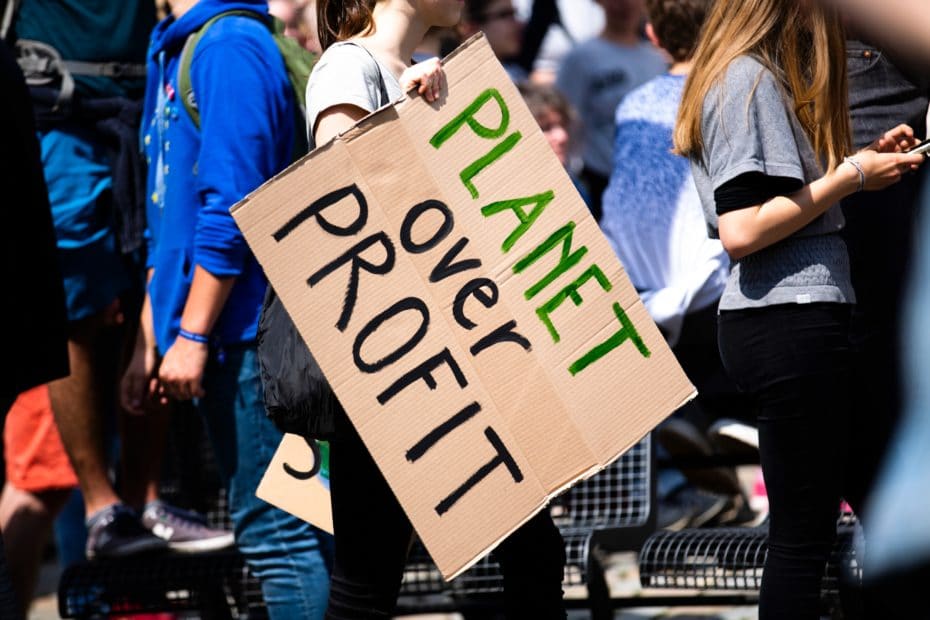All things considered, 2021 was not a great year for our planet. But there’s still a bit of room for climate optimism.
Last year added yet another record to the books as the sixth-warmest year in recorded history. Warmer temperatures around the world came hand-in-hand with numerous extreme weather events. Massive wildfires flared up in the western United States during both the regular summer season and, unusually, the colder, wetter winter months as well. Heat waves across the country also seemed to have little regard for the seasons. My hometown in temperate, rainy Oregon set a new record high temperature in June (which, incidentally, tied the record high for the sun-baked city of Las Vegas), while my adopted city of Nashville saw its second-warmest December.
From the severe winter storm in Texas last February to Hurricane Ida’s late summer debut in Louisiana, as well as an unusually active December tornado season here in the South and Midwest, it’s been quite the year for unusual weather and natural disasters fueled by a changing climate. And that’s just here in the United States.
As a result, I’ve felt inundated with negative environmental headlines lately. Climate pessimism and frustration are real feelings and easy to fall into, as Alexa wrote about last week. And the worse that things get, the easier it is to lose hope that we’ll ever accomplish a fraction of what needs to be done to avoid the worst effects of climate change.
But despite all of this, there was some hope that came out of 2021, mainly through activism and political change. To boost your environmental morale (and my own), here’s a quick list of a few wins to celebrate from last year:
Accountability for Fossil Fuel Companies
In May 2021, activist groups in the Netherlands successfully sued Royal Dutch Shell, forcing the company to pursue more ambitious goals for reducing its carbon dioxide emissions. The case, which based its argument in human rights law, argued that the company had ignored the harmful impact of its oil and gas products on people, choosing to make a profit instead.
In its ruling, the Dutch court that upheld the lawsuit required Shell to reduce its emissions by 45 percent by 2030, rather than the company’s original plan of 30 percent by that time. Interestingly, Shell agreed in a press release that “urgent action is needed” on climate change, and reemphasized its plans to reach “net-zero” emissions—but argued that systemic change across the energy industry is needed far more than a single lawsuit.
While systemic change is undoubtedly necessary, this lawsuit does set a legal precedent for holding fossil fuel companies accountable for their harmful actions, paving a path for activist organizations to effect more rapid and positive environmental change across the energy sector.
Protection for Forests
Forests and natural areas across the globe found some big wins this year as well. The most notable occurred at COP26, when over 140 countries—representing 90 percent of the world’s forest cover—agreed to end deforestation within the next eight years. Notably, Brazil (home to the Amazon rainforest) joined this agreement, along with Cameroon, Central African Republic, the Democratic Republic of the Congo, Equatorial Guinea, Gabon, and Republic of the Congo—the countries home to the Congo Basin, another large tropical forest that also acts as a significant carbon sink.
The agreement itself signals that countries have started to place a stronger emphasis on preventing deforestation, and that they recognize the importance of maintaining healthy forests for preventing climate change. If it holds up and countries follow through on their commitments, we could see a significant amount of reforestation in the coming years.
Meanwhile in Indonesia, government authorities conducted an investigation into permitting and tax violations among two dozen palm oil companies (to read up on palm oil, check out my article here). After discovering numerous violations, the government was able to revoke several of the companies’ licenses to clear forests for oil palm plantations, potentially saving enough pristine forest to prevent Indonesia’s carbon emissions from increasing 40 percent from current levels.
Divestment from Fossil Fuels
Divestment, or the decision to stop investing and buying stocks in fossil fuel funds, has existed as a movement for over a decade. By doing so, activists hope to reduce the economic power of the fossil fuel industry and make room for greener energy sources to thrive. At the time of writing, nearly 1500 companies have decided to divest; in 2021, key players like Harvard University, the Ford Foundation, the MacArthur Foundation, and various other universities and corporations joined in.
This op-ed from the New York Times particularly credits persistent student activism at Harvard and Boston universities with influencing the institutions’ final decision to divest. These schools, along with the University of Minnesota, point to divestment as a way to signal the importance of a green energy transition and ensure that the schools are putting their money where their mouths are.
Hopefully, we’ll see more progress along these lines in 2022—be it divestment by other economic heavyweights, further protections for key ecosystems around the world, or stronger transitions to clean energy.
- A Dose of Climate Optimism from 2021 - January 20, 2022
- When It Comes To Climate Change, Language Matters. Here’s Why. - December 28, 2021
- The EPA Wants To Take A Few Years To Regulate PFAS. Here’s Why. - October 28, 2021
